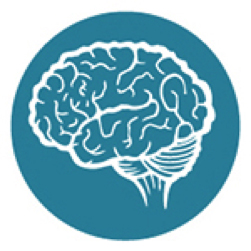Benefits of Fasting at Kokolulu

BENEFITS OF FASTING
*Mark Mattson, Chief of the Laboratory of Neuroscience at the National Institute on Aging. A professor of Neuroscience at The Johns Hopkins University, and foremost researcher in the area of cellular and molecular mechanisms underlying multiple neurodegenerative disorders, like Parkinson’s and Alzheimer’s disease….
Fasting twice a week could significantly lower the risk of developing both
- Parkinson’s and Alzheimer’s disease
- Calorie restriction (CR) extends life span and retards age-related chronic
- diseases in a variety of species, including rats, mice, fish, flies, worms, and yeast.
- Fasting does good things for the brain, and this is evident by all the beneficial neurochemical changes that happen in the brain when we fast. It
- also improves cognitive function increases neurotrophic factors, increases stress resistance, and reduces inflammation.
- Intermittent fasting enhances the ability of nerve cells to repair DNA
- Cycles of prolonged fasting protect against immune system damage and,
- moreover, induce immune system regeneration. This means that fasting kills off old and damaged immune cells, and when the body rebounds it uses stem cells to create brand new, completely healthy cells.
- 5:2 plan, you cut your food down to one-fourth of your normal daily calories on fasting days (about 600 calories for men and about 500 for women), while consuming plenty of water and tea. On the other five days of the week, you can eat normally.

The Scientist June 2017
| A BODY WITHOUT FOOD
Mounting evidence suggests that intermittent fasting causes significant changes to various organs and tissue types. The fasting signal likely starts in the liver, the body’s central command for metabolism. But through changes in gene expression and alterations in complex enzymatic pathways, the effects of food deprivation spread throughout the body, from the brain and visceral fat to the muscles and more. |
 |
Liver
Fasting and time-restricted feeding increases insulin sensitivity, decreases insulin resistance, and lowers blood glucose levels. With prolonged periods of fasting, the liver’s glycogen stores become depleted, and visceral fat is tapped as an energy source, which releases ketones that can be metabolized by neurons and muscle cells. |
 |
Immune System
Periodic fasting reprograms T-cell populations, tamping down autoimmunity and rescuing immunosenescence. A lack of incoming calories appears to prune away autoimmune T cells, and with refeeding, hematopoietic stem cells are activated to replace T cells, lymphocytes, and other white blood cells. Several fasting studies have also pointed to a decrease in inflammatory cytokines. |
 |
Heart
Because triglycerides become mobilized for energy in the absence of incoming dietary calories, blood lipid levels tend to go down in a fasting body. Researchers have also seen decreases in blood pressure in fasting animals. In some animal studies of fasting, investigators have recorded decreases in cholesterol. |
 |
Brain
Intermittent fasting has improved memory, learning, and neurogenesis in rodents, and has been shown to repair some neurons in mouse models of ischemic stroke. |
 |
Cancer
By making tumor cells more susceptible to chemotherapeutic agents while protecting healthy cells from the treatment’s toxicity, intermittent fasting is showing promise in slowing the progression of breast cancers and melanoma in mice. |







